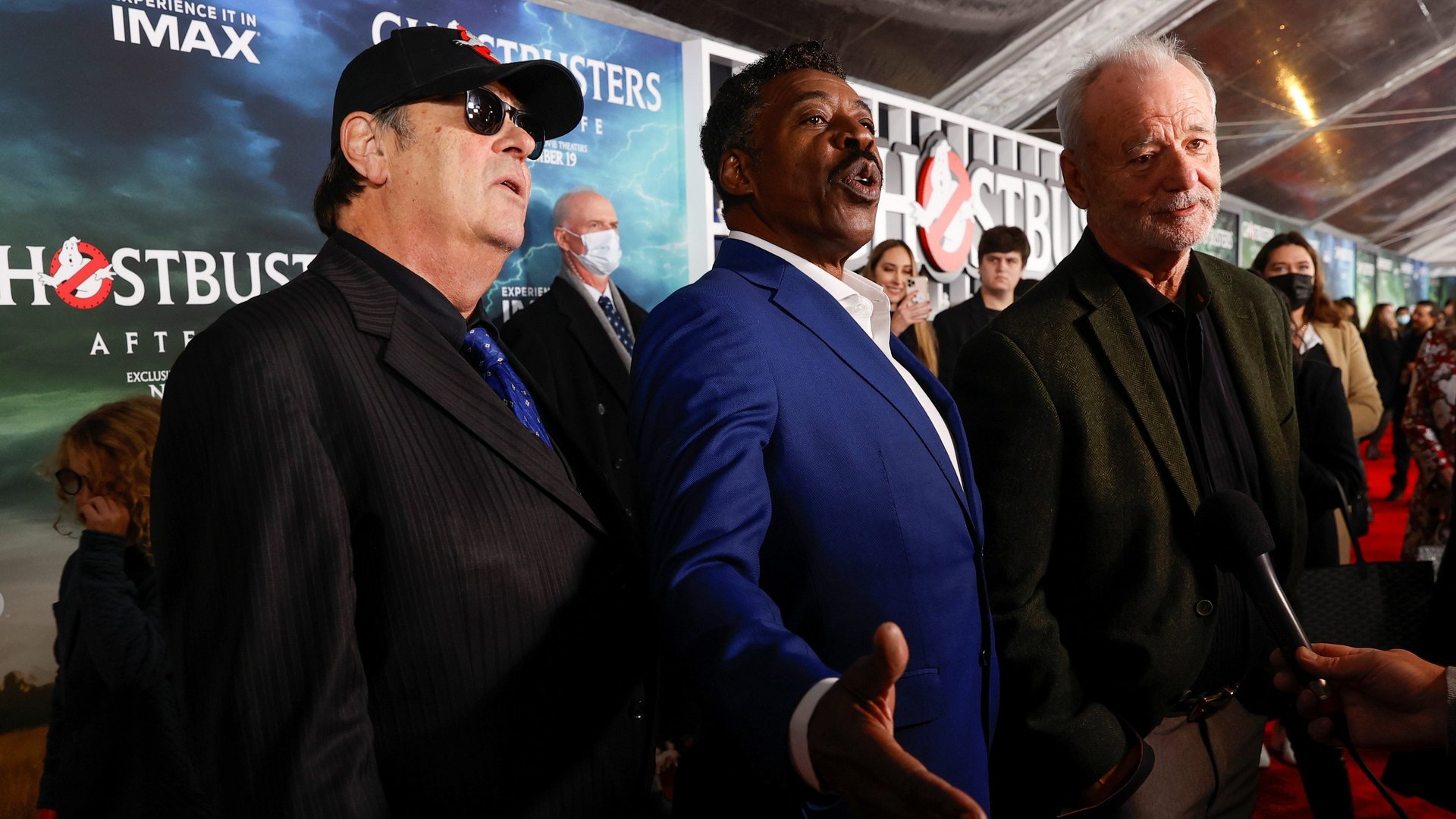Sony’s ‘Ghostbusters’ success shows a theater-only strategy can work
The pandemic and its logistical hurdles are still shadowing the results of Hollywood’s theatrical releases, but a recent box office win suggests the industry is entering a new phase.


The pandemic and its logistical hurdles are still shadowing the results of Hollywood’s theatrical releases, but a recent box office win suggests the industry is entering a new phase.
This weekend, Sony’s Ghostbusters: Afterlife, with an estimated budget of $75 million, pulled in a respectable $44 million at the box office, despite the fact that the film was only available in movie theaters. In contrast, Warner Bros.’ King Richard, starring Will Smith and simultaneously released in theaters and on HBO Max, only earned back $5.7 million of its $50 million budget.
The two weekend releases cater to somewhat different audiences but hint at the still tricky prospect of Hollywood’s hybrid movie release strategy, in which studios release a film in movie theaters and on streaming services on the same day.
Earlier this month, Disney veered farther away from its early pandemic hybrid strategy by releasing Marvel’s Eternals exclusively in theaters instead of simultaneously on Disney+ as it did with Black Widow this summer. That decision yielded a successful $71 million weekend box office for the little-known Marvel characters, compared to the much higher profile Marvel film Black Widow, which pulled in just a bit more for its opening at $80 million.
🎧 For more intel on box office hits, listen to the Quartz Obsession podcast episode on sequels. Or subscribe via: Apple Podcasts | Spotify | Google | Stitcher.
At the time, the studio’s early test of the hybrid release strategy didn’t seem to damage Black Widow’s revenue, but concerns around streaming cutting into profits led to a lawsuit and eventual settlement between the studio and the film’s star, Scarlett Johansson. The ongoing potential diminished revenue concerns around hybrid releases, as well as increased covid-19 reopenings, saw the studio modify its approach by releasing Shang-Chi and the Legend of the Ten Rings in theaters first in the fall, and then on Disney+ a couple of months later. The result was a strong $71.4 million opening weekend at the box office.
“Debuting movies simultaneously in theaters and at home is devastating to our collective businesses,” Josh Greenstein, the president of Sony Motion Picture Group, said during CinemaCon, an annual gathering of theater owners in August. “Our movies will be seen exclusive first in our movie theaters… Movie theaters and the theatrical movie experience will triumph.”
The path back to traditional theatrical film releases is beginning to emerge
As covid-19 concerns wane in some of the biggest cities in the US, Greenstein’s prediction appears to be coming true. King Richard was released in roughly 3,300 theaters, while Ghostbusters: Afterlife debuted in about 4,300 theaters. And while the former played in fewer theaters, Smith’s biopic about Richard Williams, the father of tennis stars Venus and Serena, had an additional 70 million (pdf) potential viewers through HBO Max. However, it’s not possible to know what real impact the HBO Max option had on the release since the streaming service doesn’t release its viewership numbers.
Although it’s difficult to compare a tentpole franchise sequel like Ghostbusters to a dramatic, Oscar-nomination-bait release like King Richard, the success of Sony’s theaters-only release nevertheless stands out. And the studio plans to continue its “exclusively in theaters” strategy next month Spider-Man: No Way Home is released.
Hollywood is cautiously testing reopening strategies, but keeping streaming close as an option
Other theater-exclusive releases coming up this year include MGM’s House of Gucci, as well as Disney’s West Side Story and The King’s Man in December. Disney’s announcement of a return to theater exclusives came in September following a rocky period of experimentation during the pandemic. Similarly, Warner Bros. plans to return to theater-only releases starting in 2022, with its HBO Max service getting its films 45 days after theatrical release.
“The U.S. government’s approval of vaccines for five- to 11-year olds and the reopening of borders to fully vaccinated international travelers are both important steps toward the recovery of our business,” Disney CEO Bob Chapek said during a conference call with analysts and investors earlier this month.
“We’re sticking with our plan of flexibility because we’re still unsure in terms of how the marketplace is going to react when family films come back with a theatrical-first window.”